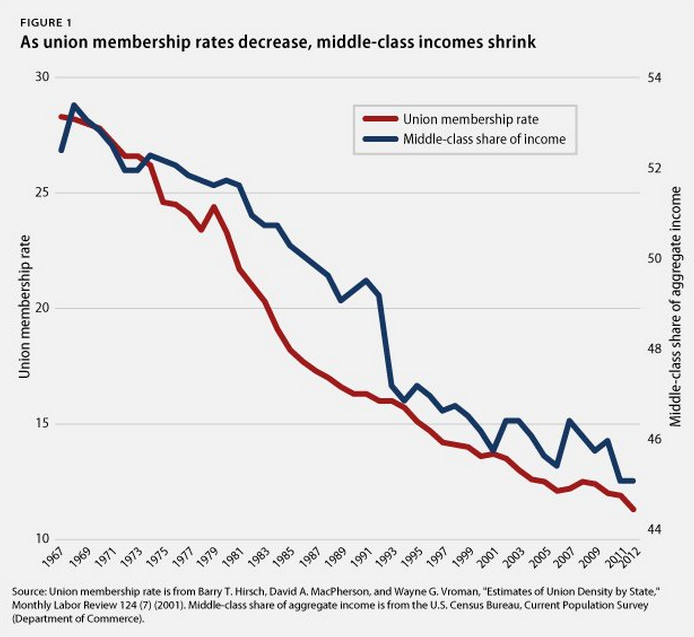
What Do Unions Do For Me?
By Teamsters492.org Webmaster, Trey White
I am always amazed when I hear some say to me, “I don’t need the Union; I do my job!” That may be true, you may be the best at your job and never do anything wrong, but the Union still helps you in ways you probably are not aware of or are thankful for because they have always been there for you so you feel that’s just normal.
If you work in a Union job, you are most likely benefiting from higher wages and benefits like paid retirements, paid holidays and the big one these days; paid insurance. Even if you have to pay a little towards some of these things, you are still probably better off than your non-union counter-parts. You may not have chosen to work there because it is a Union job, but the reasons that you do work there were more than likely made possible by the very Union you don’t think you need.
The fact is; Unions raise the wages and benefits for everyone in this country, even non-union workers. The non-union competitors must keep their wages fair because if they don’t, two things will happen the non-union company does not want; first the employees will start to leave and then the remaining employees will start reaching out to Unions to organize them, we see this all the time. Companies do not want either to happen, so they try to keep their employees just happy enough to avoid it. But if there were no Unions, there would be no threat. Then wages, benefits and overall working conditions would drop.
The decline of membership in Unions coincides with the decline in middle-class income:

If you are still not convinced, read the list of benefits below that most Americans take advantage of, (even management) that would not exist if not for Unions making them happen.
Did you know that labor unions made the following 36 things possible?
- Weekends off
- All breaks at work, including your lunch breaks
- Paid vacation
- Family & Medical Leave Act (FMLA)
- Sick leave
- Social Security
- Minimum wage
- Civil Rights Act/Title VII - prohibits employer discrimination
- 8-hour work day
- Overtime pay
- Child labor laws
- Occupational Safety & Health Act (OSHA)
- 40-hour work week
- Workers' compensation (workers' comp)
- Unemployment insurance
- Pensions
- Workplace safety standards and regulations
- Employer health care insurance
- Collective bargaining rights for employees
- Wrongful termination laws
- Age Discrimination in Employment Act of 1967 (ADEA)
- Whistleblower protection laws
- Employee Polygraph Protection Act (EPPA) - prohibits employers from using a lie detector test on an employee
- Veteran's Employment and Training Services (VETS)
- Compensation increases and evaluations (i.e. raises)
- Sexual harassment laws
- Americans With Disabilities Act (ADA)
- Holiday pay
- Employer dental, life, and vision insurance
- Privacy rights
- Pregnancy and parental leave
- Military leave
- The right to strike
- Public education for children
- Equal Pay Acts of 1963 & 2011 - requires employers pay men and women equally for the same amount of work
- Laws ending sweatshops in the United States
